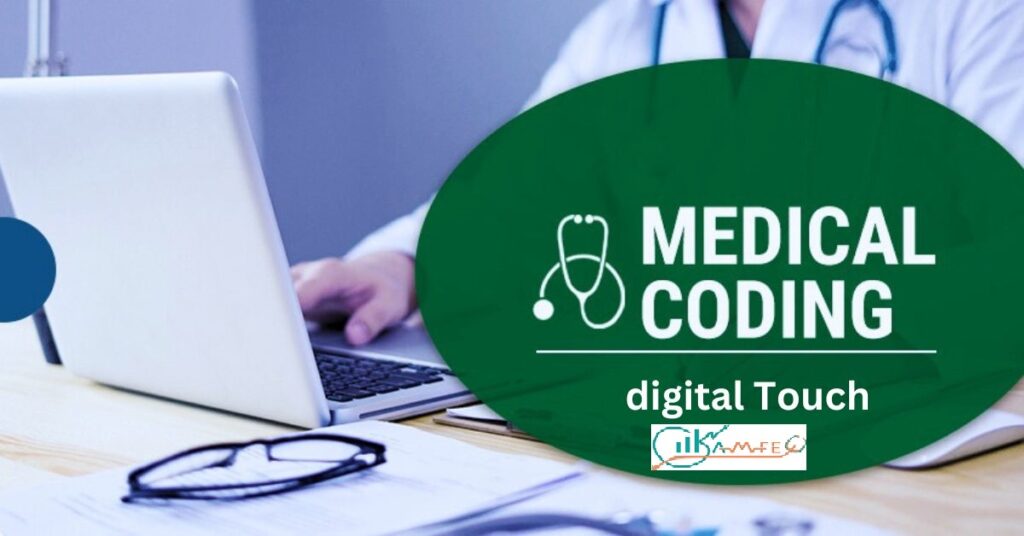In today’s healthcare industry, medical coding services play a crucial role in simplifying healthcare billing procedures. These services are responsible for assigning standardized codes to medical diagnoses, procedures, and treatments.
By accurately coding these services, healthcare providers can communicate with insurance companies effectively, ensuring accurate billing and timely reimbursement. In this comprehensive guide, we will explore the importance of medical coding services, the benefits they offer, the role of certified medical coders, different types of coding services, and the future of this field.

What are Medical Coding Services?
Medical coding services involve the assignment of standardized codes to medical diagnoses, procedures, and treatments. These codes serve as a common language between healthcare providers, insurance companies, and other stakeholders involved in the billing process. By using standardized codes, healthcare providers can communicate precisely about the services provided, facilitating accurate billing and reimbursement.
Benefits of Medical Coding Services:
Ensuring Accuracy:
Accurate medical coding is vital in reducing errors in billing and minimizing claim rejection rates. The financial impact of inaccurate coding on healthcare organizations is significant. Inaccurate coding can lead to delayed payments, revenue loss, and increased administrative costs. By implementing precise coding practices, healthcare providers can minimize errors, improve revenue cycles, and enhance overall financial performance.
Streamlining Revenue Cycle:
Efficient medical coding is essential for revenue cycle management. Properly coded claims expedite the claim processing and reimbursement timeline, reducing payment delays and improving cash flow for healthcare providers. Additionally, streamlined revenue cycles allow organizations to allocate resources effectively, leading to improved patient care and sustainable operations.
Compliance with Regulations:
Adhering to industry regulations is critical for healthcare providers. Compliance with regulations such as the Health Insurance Portability and Accountability Act (HIPAA) and the International Classification of Diseases (ICD)-10 coding guidelines is essential to avoid legal risks. Professional medical coders stay updated with changes to compliance regulations, ensuring that healthcare organizations maintain the necessary standards and protect patient information.
The Role of Certified Medical Coders:
Certified medical coders play a vital role in accurately assigning codes based on patient records, physician documentation, and clinical knowledge. These professionals possess the necessary qualifications and skills to ensure precise coding, reducing errors and improving overall billing accuracy. Certified coders undergo rigorous training and examinations to obtain their credentials, making them well-equipped to handle complex coding scenarios.
Types of Medical Coding Services:
Diagnosis (ICD) Coding:
Diagnosis coding involves assigning codes that represent patients’ illnesses or conditions. The most commonly used diagnosis code sets are the ICD-10-CM (Clinical Modification) and ICD-10-PCS (Procedure Coding System). Accurate diagnosis coding enables healthcare providers to classify diseases correctly, facilitating appropriate treatment and reimbursement.
Procedure (CPT) Coding:
Procedure coding, often referred to as Current Procedural Terminology (CPT) coding, involves identifying the treatments, surgeries, or other medical interventions performed on patients. Proper procedure coding is vital for obtaining appropriate reimbursement from insurance companies. It ensures that the services rendered are accurately documented and billed for, avoiding under- or over-coding scenarios.
Health Insurance Portability and Accountability Act (HIPAA) Compliance:
Medical coding also plays a role in maintaining patient privacy and confidentiality, aligning with HIPAA regulations. Proper coding practices contribute to HIPAA compliance by ensuring that patient information is shared securely and only with authorized individuals. Medical coders must handle patient data ethically and ensure its protection throughout the coding process.
The Future of Medical Coding Services:
The field of medical coding services is constantly evolving, and technological advancements are playing a significant role in shaping its future. Artificial intelligence (AI) and automation are emerging trends that could revolutionize medical coding. AI algorithms can analyze medical records, extract relevant information, and suggest appropriate codes, potentially reducing the time and effort required for manual coding. However, these advancements also come with challenges, such as ensuring the accuracy and ethical use of AI in coding.
Conclusion:
As technology continues to advance, the future of medical coding services holds tremendous potential, with AI and automation offering exciting possibilities. Healthcare providers are encouraged to leverage professional medical coding services to optimize their financial operations while improving patient care. By entrusting coding to certified professionals, healthcare organizations can streamline their billing processes, minimize errors, and ensure compliance with industry standards.




